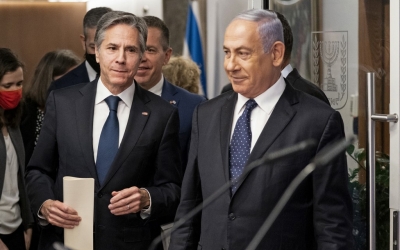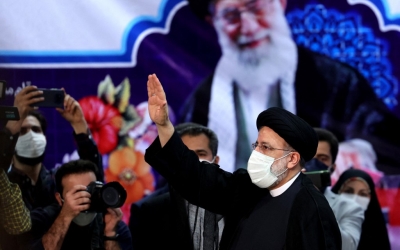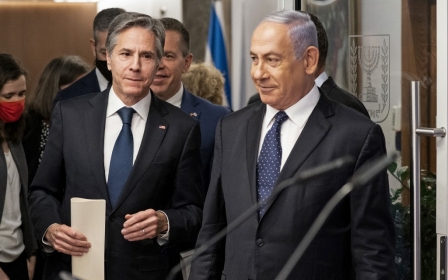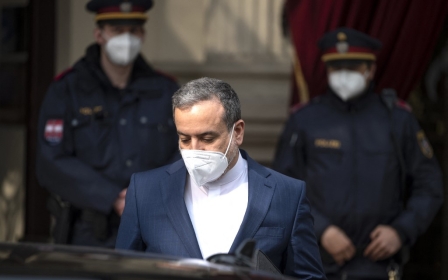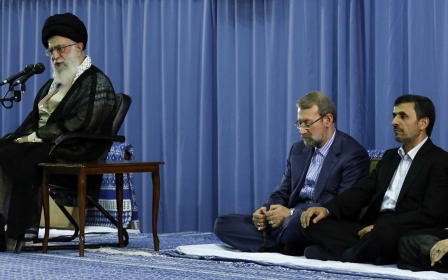Iran says 'significant progress' made in nuclear talks, but key issues remain
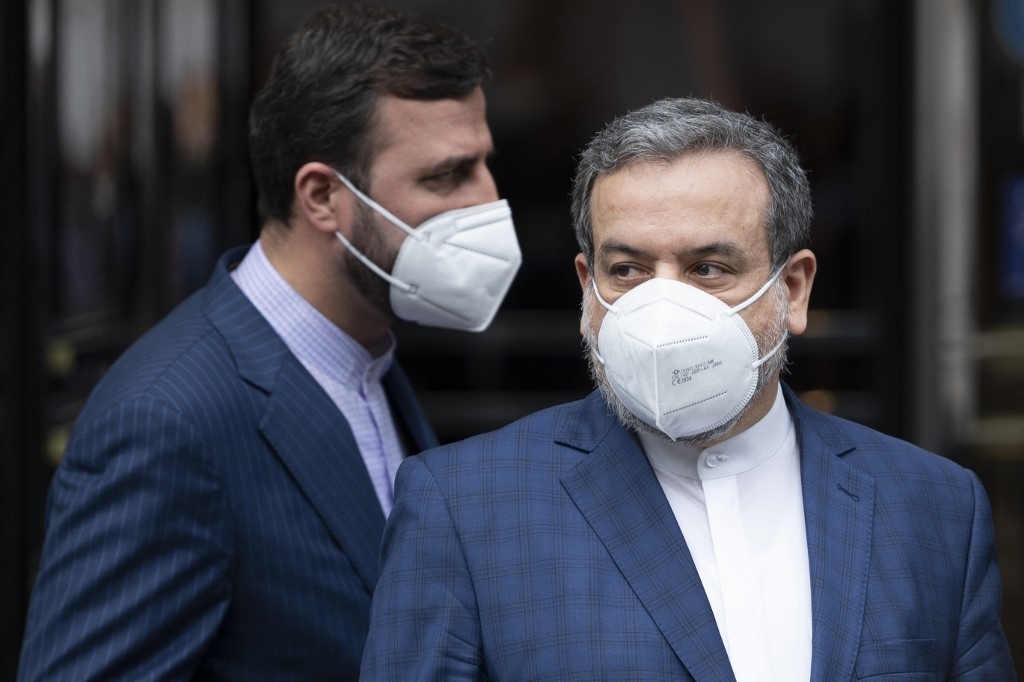
Iran and six world powers have made significant progress in talks to revive their 2015 nuclear deal but important issues still need to be resolved, a spokesperson for the Iranian Ministry of Foreign Affairs said on Monday.
Iran and western countries have been negotiating in Vienna since April to work out the steps that Tehran and Washington must take on sanctions and for nuclear activities to return to full compliance with the pact.
"Each round of talks in Vienna could have been the final round. We should not rush. We have made significant progress but key issues remain," Saeed Khatibzadeh, a foreign ministry spokesman, told a televised weekly news conference. "There is no stalemate in the talks."
Three years after former US President Donald Trump ditched the deal and reimposed sanctions on Iran, Tehran has been rebuilding stockpiles of uranium, enriching it to higher levels of fissile purity and installing advanced centrifuges to speed up production.
Iran's top nuclear negotiator doubted that the talks were in their final stage, adding that the delegations might need to return to their capitals for consultations.
"The negotiations are very complex and we have now reached the main issues of dispute," Abbas Araghchi told state TV from Vienna.
Iran's reversal of its various breaches of the deal and its enrichment with advanced centrifuges and production of uranium metal are some of the remaining issues, according to sources that spoke to Reuters.
A minefield laid by Trump
US President Joe Biden has said Washington will return to the pact if Tehran first resumes compliance with its strict limits on uranium enrichment, a potential pathway to nuclear bombs.
But Iran has called for the sanctions to be removed first and foremost.
"All sanctions should be lifted and then it should be verified by Iran ... then we will reverse our nuclear steps," Khatibzadeh said.
In looking for a path back to the accord, Washington is tiptoeing through a minefield laid by Trump. Iran-related sanctions have been imposed on more than 700 entities and people, according to a Reuters tally of US Treasury actions.
'All sanctions should be lifted and then it should be verified by Iran ... then we will reverse our nuclear steps'
- Saeed Khatibzadeh, Iranian foreign ministry
Iran demands all sanctions imposed under Trump - those tied to its nuclear programme, and non-nuclear penalties such as those linked to terrorism, missile development and human rights - should be rolled back.
"This is one of the key issues that has slowed down the talks. All sanctions, whether nuclear or non-nuclear, imposed by Trump should be lifted," an Iranian official told Reuters.
Trump blacklisted about two dozen institutions vital to Iran's economy, including its central bank and national oil company, using US laws designed to punish foreign actors for supporting terrorism or weapons proliferation.
His decision to blacklist Iran's elite Revolutionary Guards (IRGC) and its Quds Force foreign paramilitary and espionage arm as a foreign terrorist organisation has also complicated matters.
The IRGC also an industrial empire whose political influence is expected to grow after Iran's June presidential election, when a hardline president close to the elite force is expected to win.
Calls for tripling oil output
Meanwhile, Iran’s Oil Minister Bijan Namdar Zanganeh on Monday, ahead of a meeting of major producing nations, said that his country should almost triple its crude output as a "priority" to boost its political clout.
As Iran gears up for June's presidential elections, Zanganeh called on "any incoming administration to make raising oil output to 6.5m barrels [per day] its first priority".
Iran produced 2.3m barrels per day in March, according to the latest data from the Organisation of the Petroleum Exporting Countries (OPEC).
Zanganeh's remarks, carried by the ministry's news agency Shana, came a day before a meeting of the OPEC+ bloc, made up of cartel members - among them Iran - and 10 other oil exporters.
The meeting could result in an output boost as demand recovers from a coronavirus-induced collapse last year.
Boosting Iran's oil output would also amount to increasing the country's "security and political power", Zanganeh said.
He added that Iran could "easily" achieve such a target, which would not be a "strange or unattainable goal".
Zanganeh, who has headed the oil ministry for almost 16 years in total, has said he plans to retire after President Hassan Rouhani leaves office in August.
Iranians are set to vote on 18 June to choose a successor to Rouhani, who is constitutionally barred from running after two consecutive terms.
Middle East Eye propose une couverture et une analyse indépendantes et incomparables du Moyen-Orient, de l’Afrique du Nord et d’autres régions du monde. Pour en savoir plus sur la reprise de ce contenu et les frais qui s’appliquent, veuillez remplir ce formulaire [en anglais]. Pour en savoir plus sur MEE, cliquez ici [en anglais].


